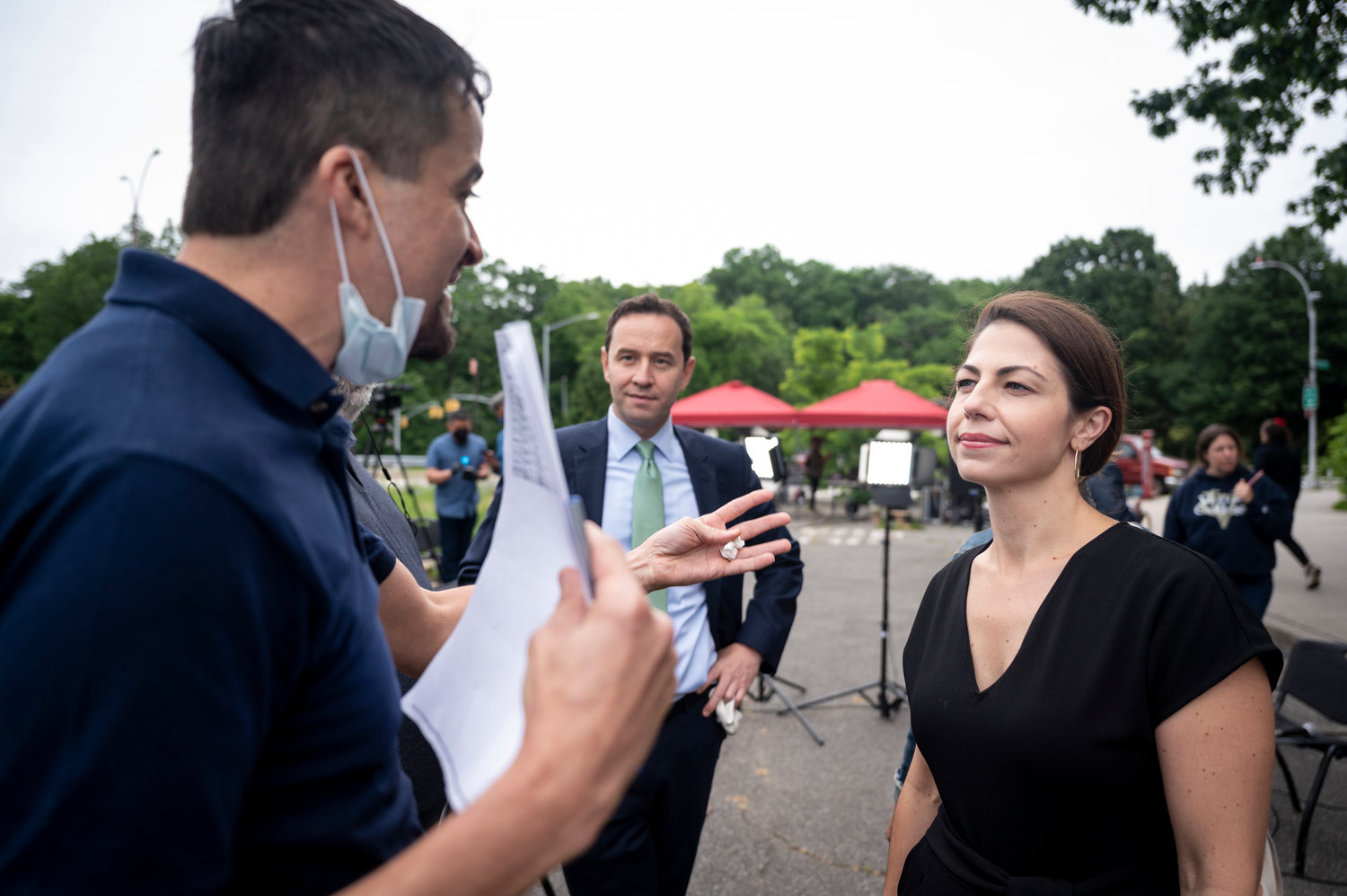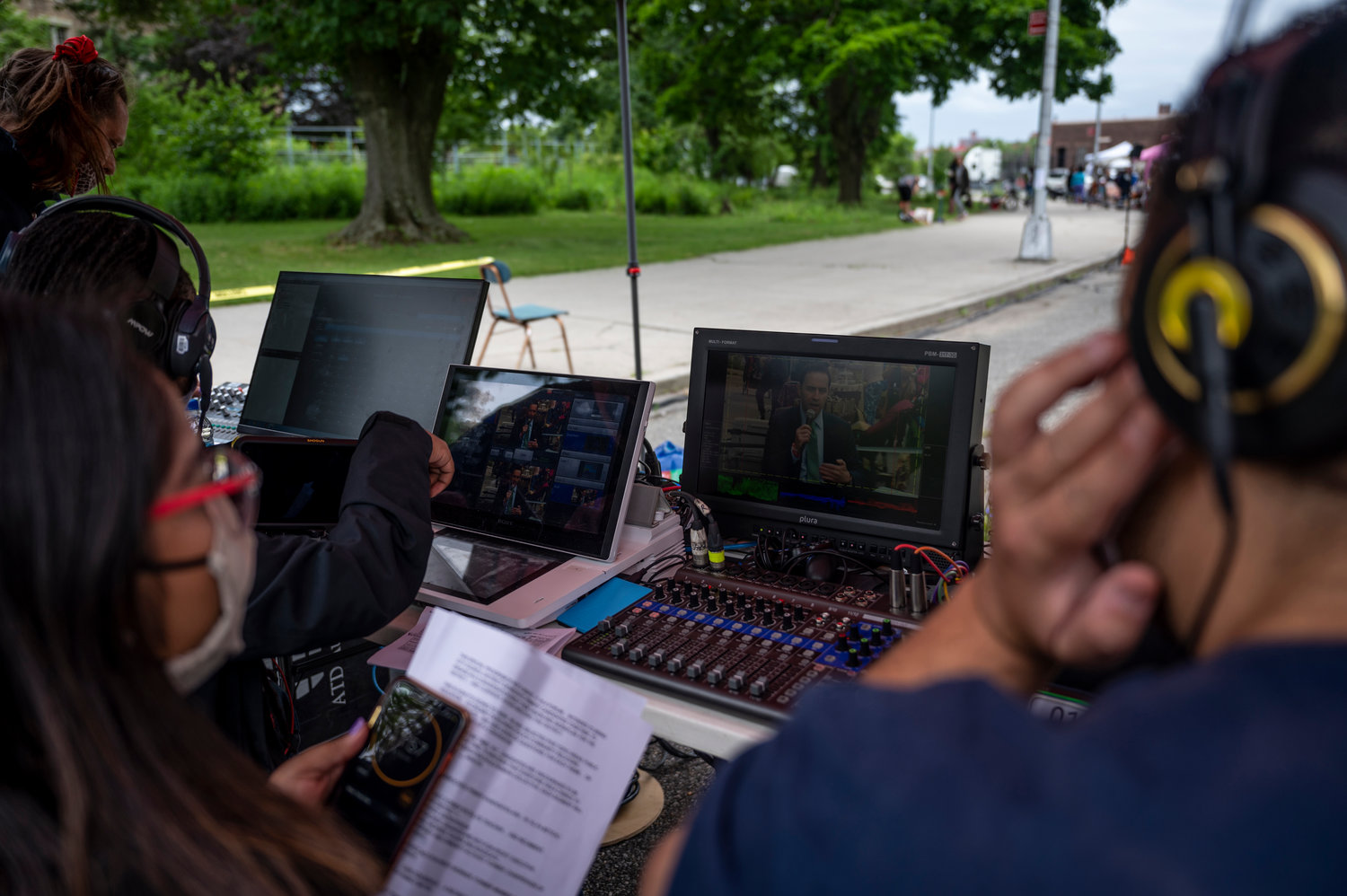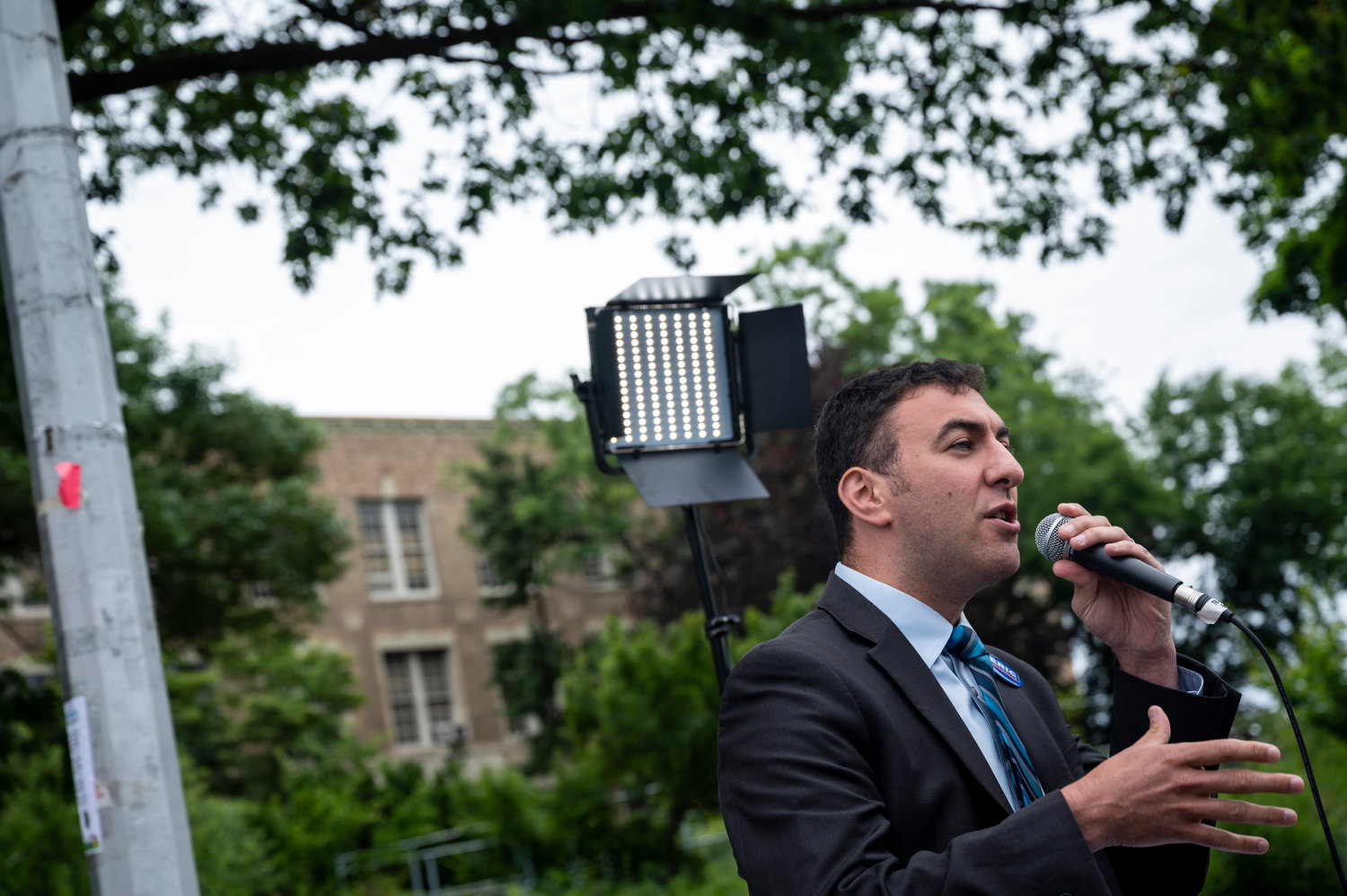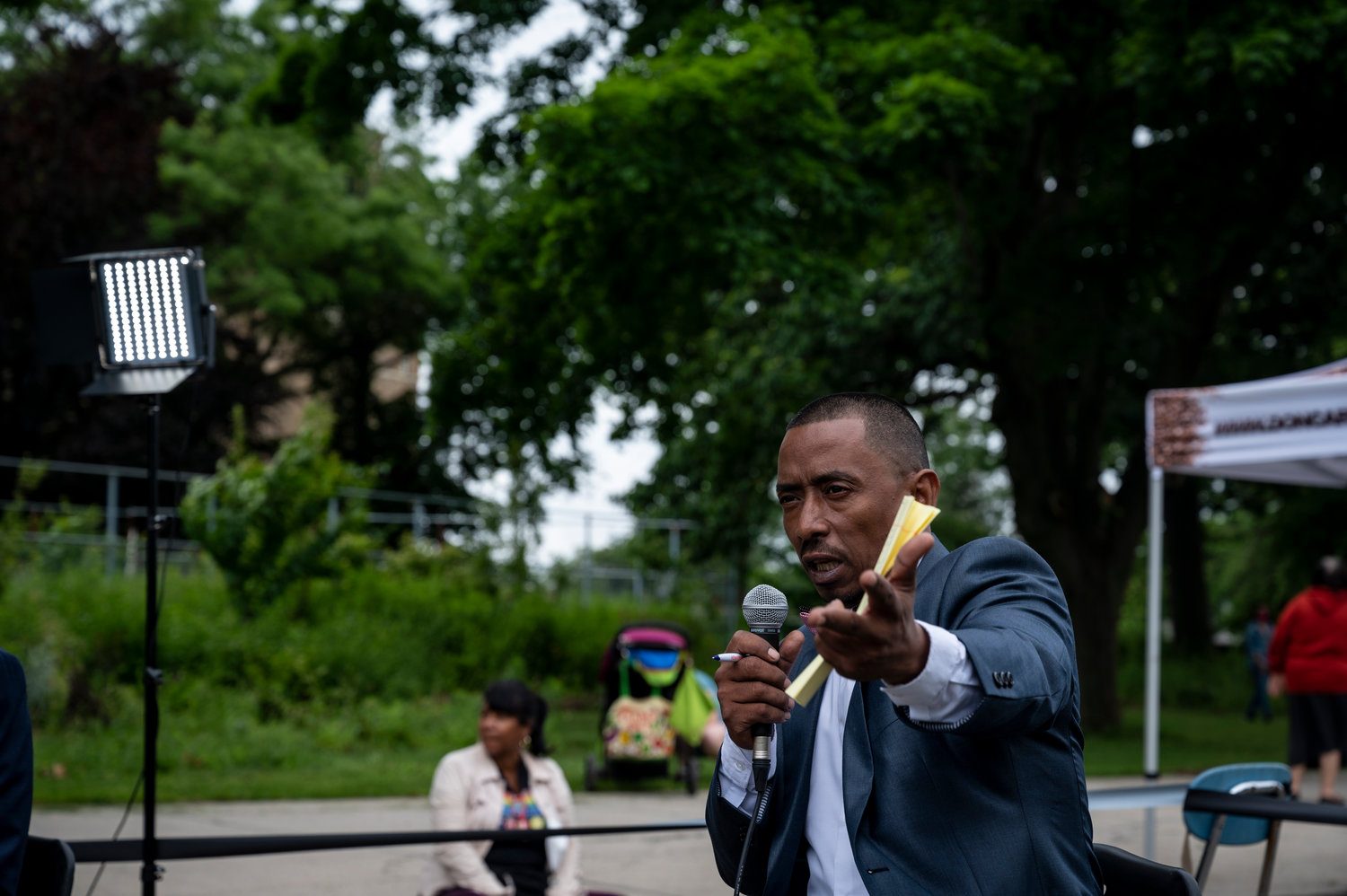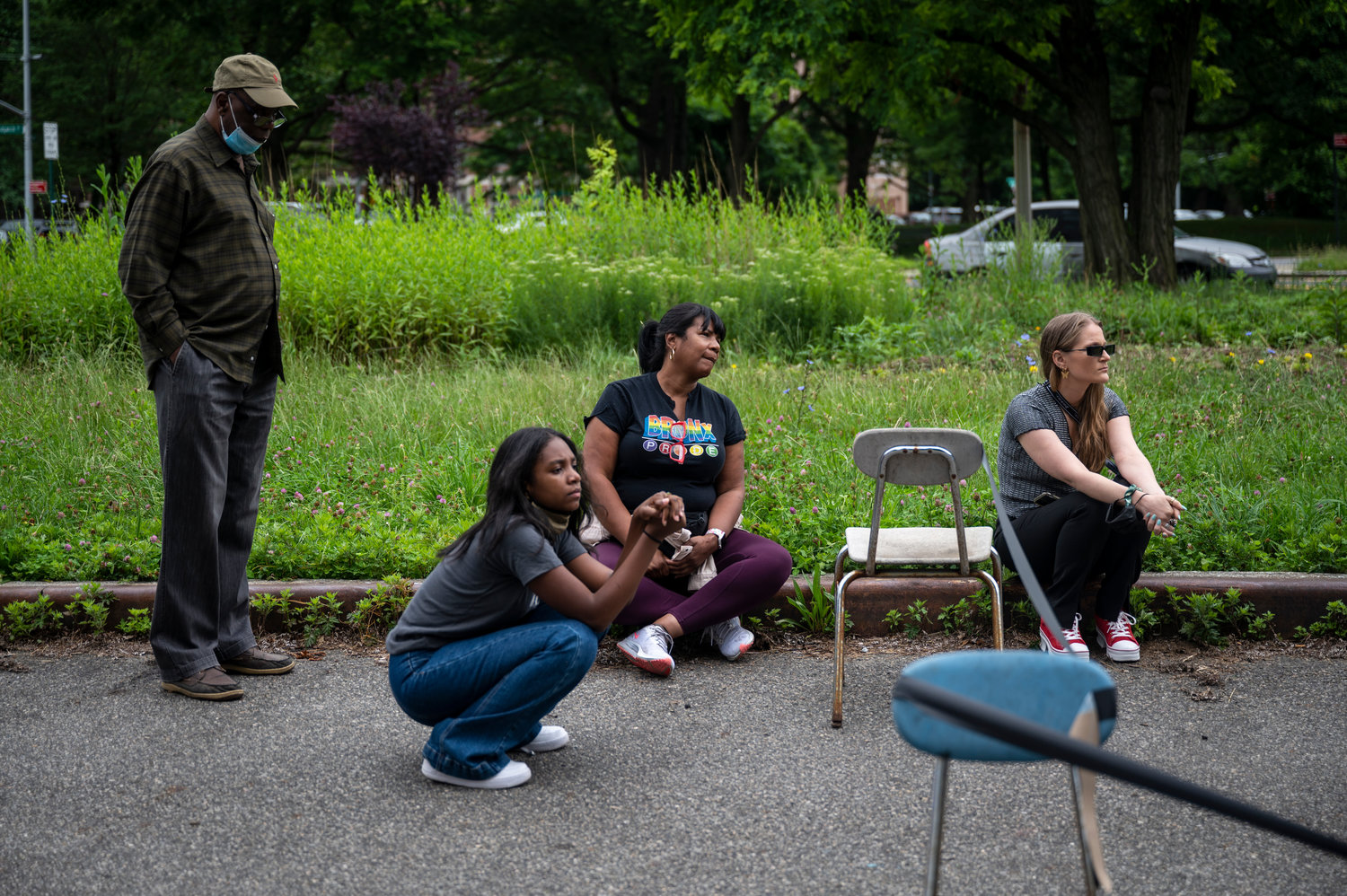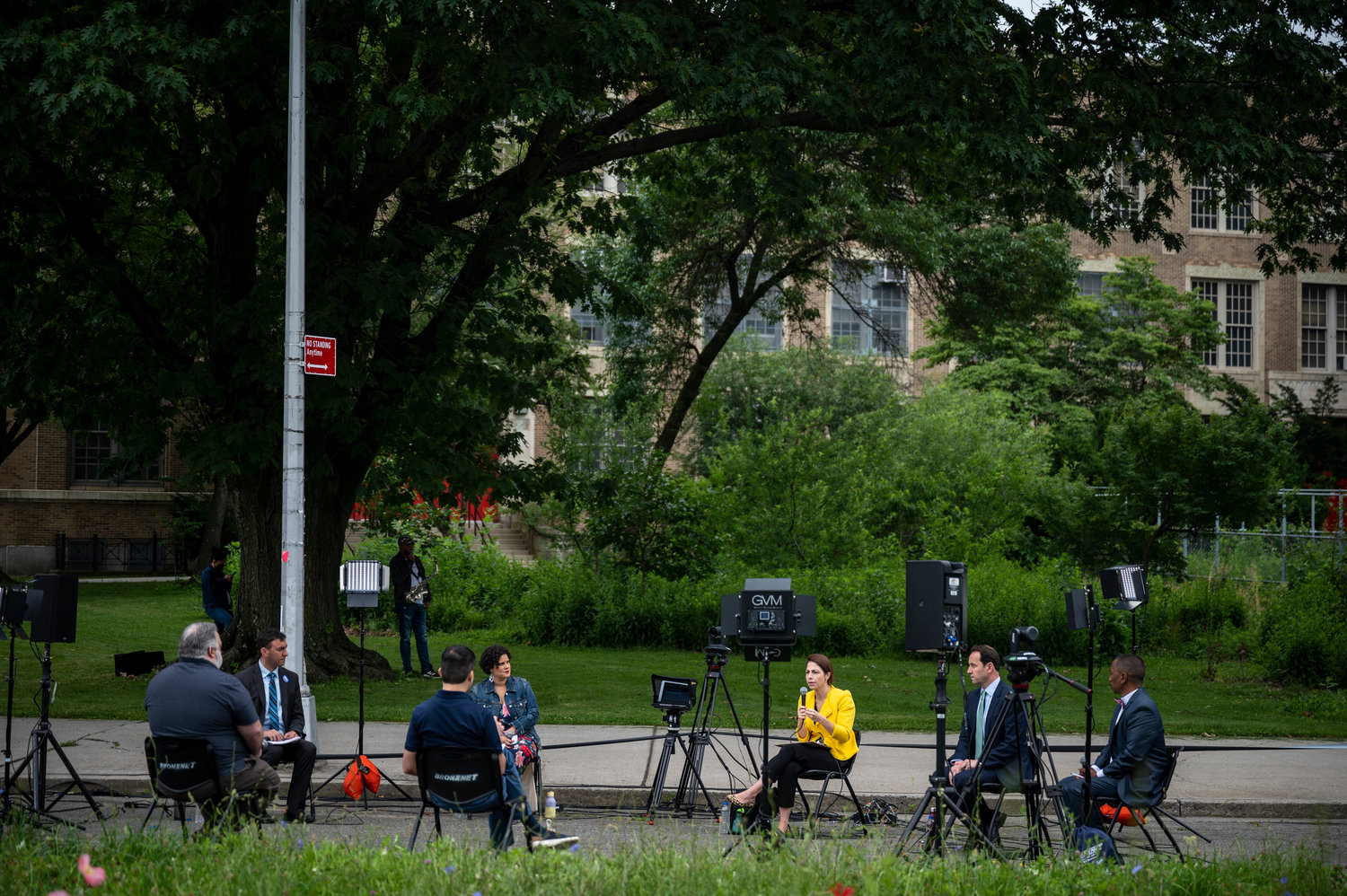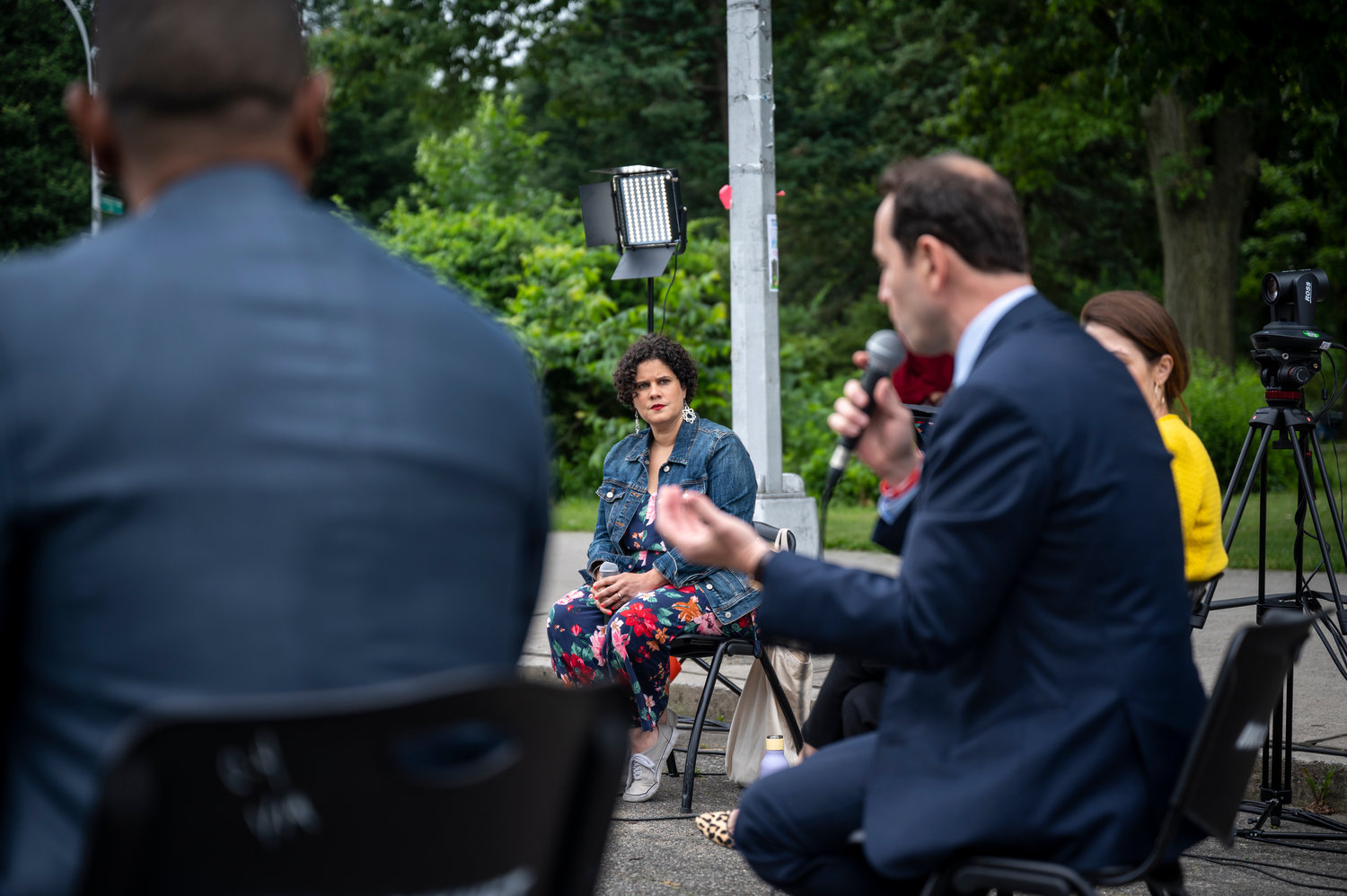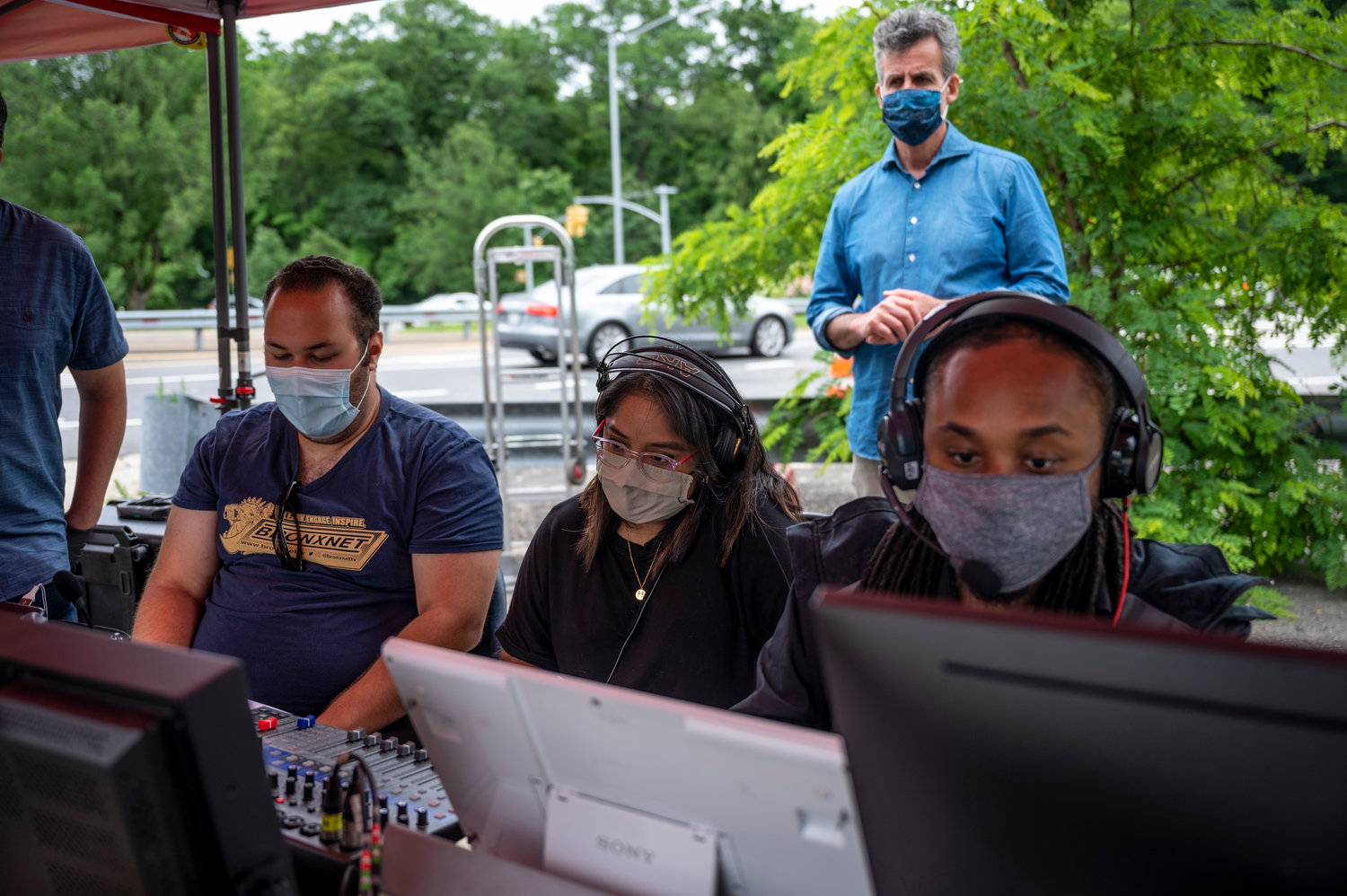Council candidates spar one last time
It’s finally here. After months — even years, for some — of campaigning, next week this corner of the Bronx will finally choose its representative in City Hall for the next two years.
As the sitting councilman, Eric Dinowitz must defend his seat against five challengers in the June 22 Democratic primary, although early voting is already well underway. Dinowitz won his seat in a March special election to replace Andrew Cohen, who stepped down to join the Bronx Supreme Court, and has served since mid-April.
Like the special election, the primary will be yet another ranked-choice contest, where voters put their top five choices in order of preference. The council candidates join a ballot filled with citywide races for mayor, comptroller and public advocate, as well as contests for borough president and two civil court judgeships.
And who would’ve thought the definition of “eviction” would be a point of contention for the candidates in the final stretch of this primary race.
But that’s exactly what happened after the principals of DeWitt Clinton High School decided to oust the James Baldwin Outdoor Learning Center from the school grounds. Named for a Clinton alum who became a celebrated American writer, the learning center started with a community garden on the western side of the school in 2010, and has grown to include a number of activities ranging from agricultural programs to a Saturday farmers market.
But now, volunteers are locked out of the garden after the city’s education department cited permitting issues, and could likely never be allowed to return.
Airing that topic made sense at what is expected to be the final candidates forum for Cohen’s old council seat, since the farmers market and garden played host to the event that was led by The Riverdale Press and BronxNet.
In what has become the only in-person forum in this particular race, all of the candidates joined the moderators — BronxNet reporter Javier Gomez and Press editor Michael Hinman — except for retired New York Police Department detective Carlton Berkley, who was out of state on a family matter.
Still, the eviction — something Kingsbridge Heights attorney Dan Padernacht says concerns him very much.
“I think it’s extremely horrible what the (school) administration did here,” Padernacht said. “On very little notice, they told these folks that — after years of hard work, and years of teaching students here — they had to leave right away.”
The root issue is a lack of transparency from the education department, he said, and the fact that the decision to oust the garden was made without any community input.
In order to save the garden, Padernacht said the area’s current elected officials — like Dinowitz — must nag schools chancellor Meisha Porter every day about why the garden isn’t coming back.
But Dinowitz says his office already has intervened. In fact, the eviction was stopped dead in its tracks.
“They were going to be evicted,” the councilman said. “They were asked to remove everything by a certain date, and that has been revoked. And we are in the process of saving the garden.”
Using the power of his elected office, Dinowitz says he pulled together the school’s principals, some community members and the learning center’s leadership to discuss the issue. The problem is with the city needing to issue a new permit for the center — something the education department isn’t doing because the city agency told him they currently aren’t issuing these permits.
But social worker Abigail Martin spoke up challenging Dinowitz’s assertion the problem had been solved, because the learning center’s members are still locked out of the garden.
“If kids can’t go into the garden, that means they have been evicted,” Padernacht said. “If they can’t use it, it means they have been evicted. If somebody is evicted from their apartment, and they came home and are locked out of their apartment — if they can’t get back in, that is an eviction.”
.
Making ‘affordable’ housing affordable
On the broader topic of housing evictions, Mino Lora — a non-profit executive director from Spuyten Duyvil — described housing as a “human right,” saying it’s time to cancel apartment rent for those who found themselves financially devastated through the coronavirus pandemic.
“It is unacceptable that this rent burden that we’ve been having, and the crisis that’s been exacerbated during COVID, is happening right now,” Lora said. “It points to our flaws as a society, and us prioritizing New Yorkers and Bronxites.”
The city council must also think about what exactly affordable housing is by redefining what is — and isn’t — affordable. That starts with abandoning the area median income formula used to determine affordability, and replacing it with a more neighborhood-specific calculation based on income at the ZIP code level.
However, Martin openly questioned Lora’s commitment to affordability. She cited claims Lora supported a controversial rezoning plan in Manhattan’s Inwood neighborhood that passed the city council in 2018. Opponents to the plan say it will gentrify the neighborhoods, pushing many out of their homes.
“You’re always the one fighting for workers, yet you supported this plan that’s going to displace thousands of immigrants, thousands of residents,” Martin said. “That’s going to hurt small businesses. It’s really important for us in this district to understand what happened there. And to let us know: Is that going to happen to us?”
Lora even appeared on television with Councilman Ydanis Rodriguez supporting the plan, said Norwood political activist Marcos Sierra.
“You literally stood shoulder-to-shoulder with Ydanis and applauded, this is a quote, ‘applauded the introduction of a theatre component in this rezoning, and that gentrification was inevitable,’” Sierra said. “It is inevitable. But for me, it’s tough to swallow that you stood fast on this development.”
But Lora described all those claims as a mischaracterization. As the head of her nonprofit, the People’s Theatre Project, Lora said she was tasked with leading the arts and culture component of the rezoning plan. She crafted it based on input from many of her non-profit’s neighbors in Inwood, but ultimately opposed the plan’s final version because it ignored everything she and the neighborhood put together.
.
Struggling to spend money in the Bronx
“Over three years we worked with the community, we presented a community-driven project, one that addressed the needs of our community,” Lora said. “And to be frank, the day that it was announced, the plan that was presented did not match” that.
Additionally, Lora said, her campaign has taken pains to reinvest in this corner of the Bronx throughout both the special and primary elections. Lora has spent 39 percent of her campaign funds locally since March, a dollar amount higher than anyone else in the race by far. She did it by hiring her campaign staff locally.
Martin says she, too, has hired locally. But when it came to some of her most expensive work like printing campaign materials, she was forced to go outside of the Bronx, claiming the Bronx Democratic Party political machine controls all printing operations in the borough.
“When I was exploring running for this campaign, one of the pieces of advice that I got from multiple insiders was, ‘Do not trust any printers in the Bronx,’” Martin said. “’The Bronx machine has fingers in all of them. You have to go outside.’ And everybody knows that a bulk of candidate expenditures are in printing. So, that’s what we did. We went outside the borough for printing.”
The end result was Martin spending just 7 percent of her campaign funds in the Bronx, although she says that’s not counting the $26,000 she’s paid to her campaign manager, Alexandrea Logan. Martin says Logan is temporarily living in Riverdale, despite reporting a permanent address in Illinois to the campaign finance board. And if those dollars were counted, her Bronx spending would jump to 23 percent.
However, Dinowitz was the worst offender in local expenditures, spending just 2 percent of his nearly $90,000 in campaign funds in the Bronx since March. Maybe the system should be changed to incentivize local spending, the councilman said, but he’s proud most of his was directed toward individuals.
“There’s always ways to go back to programs and improve them,” Dinowitz said. “But my campaign spends its money on direct voter contact to talk with as many people in the district as possible. That is almost every single dollar I spend is spent on getting my message out and talking to people.”


